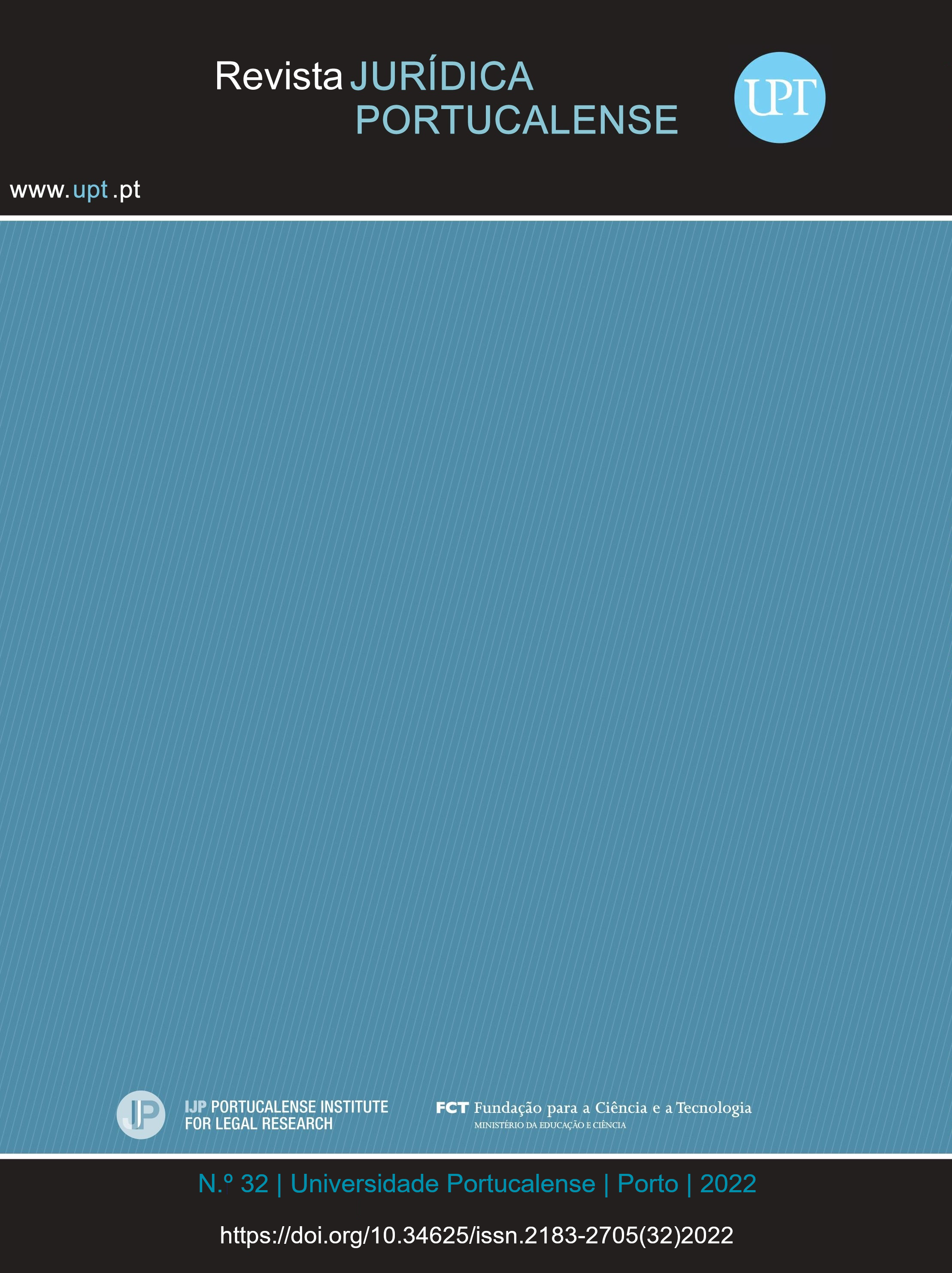Artificial intelligence in the tax management system and the prevention and identification of harmful acts in tax matters
Keywords:
Legal presumptions; artificial intelligence; tax law; "intelligent" tax management system; legal fictions.Abstract
Tax Law is a branch of Law which, according to a logic of social monitoring, is characterised by being outdated and "always one step behind reality". If we consider that the evolution of society is constant, vertiginous, and even frightening for most subjects, it is not difficult to see that the legislator itself is challenged to create constant normative measures that enable it to comply with the regulation of the new emerging realities. The globalisation and opening of markets have made economic relations geographically open, giving rise to a greater risk of acts detrimental to the tax interests of States, particularly when economic relations are mediated by expedients aimed at recourse to countries, States or regions that are fiscally more favourable and with a low level of cooperation. Tax Law cannot be immune to these challenges, and it is therefore necessary that the tax management system is not permeable to these difficulties. Therefore, the adoption of artificial intelligence tools to anticipate these harmful behaviours to the States' patrimonial (fiscal) interests is already an undeniable reality. The creation of profiles and presumptions on taxpayers is a preventive tool that allows compliance with the constitutional desiderata to which the State is bound.
References
FRANCISCO RODRIGUES PARDAL, "O uso das presunções no direito tributário", in Ciência e Técnica Fiscal, Boletim da Direcção Geral das Contribuições e Impostos, Lisboa, n.º 325-327(Jan.Mar), 1986.
G. MICHELI, “Ancora in tema di presunzioni in materia tributaria”, in Studi in memoria di Salvatore Satta, Padova, 1982.
HUGO FLORES DA SILVA, Privatização do Sistema de Gestão Fiscal, Coimbra, Coimbra Editora, 2014.
JOAQUIM FREITAS DA ROCHA, HUGO FLORES DA SILVA, Teoria Geral da Relação Jurídica Tributária, Coimbra, Almedina, 2019.
JOÃO BAPTISTA MACHADO, Introdução ao Direito e ao Discurso Legitimador, Coimbra, Almedina, 2017.
JOÃO SÉRGIO RIBEIRO, Tributação Presuntiva do Rendimento, Coimbra, Almedina, 2014.
JOSÉ LUÍS SALDANHA SANCHES, A Quantificação da Obrigação Tributária – Deveres de Cooperação Autoavaliação e Avaliação Administrativa, Lisboa, Lex, 2000.
JOSÉ LUÍS SALDANHA SANCHES, “Do Ato à Relação: o Direito Fiscal entre o Procedimento Administrativo e a Teoria Geral das Obrigações”, in Estudos em Homenagem ao Prof. Doutor Inocêncio Galvão Teles, Volume I, Coimbra, Almedina, 2002.
JOSEP AGUILÓ REGLA, “Las presunciones hominis y las inferencias probatórias”, in Derecho PUCP, n.º79, 2017, disponível em http://www.scielo.org.pe/scielo.php?script=sci_arttext&pid=S0251-34202017000200005&lng=es&nrm=iso, consultado em 09/08/2021.
JUAN MANUEL HERRERO DE EGAÑA ESPINOSA DE LOS MONTEROS, Intimidad, tributos y protección de datos personales, Barcelona, 2007, disponível em http://www.indret.com/pdf/441_es_1.pdf, consultado a última vez em 24/07/2012.
LUÍS PICA, O Direito à Autodeterminação Informativa dos Contribuintes e a Proteção dos Dados Pessoais em Matéria Tributária, Dissertação Mestrado, Braga, Uminho, 2016.
LUÍS MANUEL PICA, “The New Challenges Of Artificial Intelligence, Profiling And Bigdata Analysis By Tax Administrations: Will The Right To Meet These New Challenges Be Shown?”, in Top 10 Challenges of Big Data, Nova Editora, pp.87-102.
LUÍSA SCARCELLA, “Tax compliance and privacy rights in profiling and automated decision making”, in Internet Policy Review, Vol Volume 8, Iss Issue 4, 2019, pp.1-19.
NORA LIBERTAD RODRIGUEZ PEÑA, “Big data e inteligencia artificial: una aproximación a los desafíos éticos y jurídicos de su implementación en las administraciones tributarias”, in US ET SCIENTIA, Vol. 7, Nº 1, 2021, disponível em https://revistascientificas.us.es/index.php/ies/article/view/15843/15111, consultado em 25/07/2021.
PEDRO DE ALBUQUERQUE, DIOGO COSTA GONÇALVES, “O impedimento do exercício do direito de voto como proibição genérica de atuação em conflito”, in Revista Direito das Sociedades, Vol. III, n.º3, 2011.
RAMÓN BONELL COLMENERO, “Inteligencia Artificial, Análisis de Datos e Impacto en el Sistema Fiscal”, in Inteligencia Artificial y Administración Triburaria: Eficiencia Administrativa y Defensa de los Derechos de los Contribuyentes, Navarra, Thomson Reuteurs, 2021.
RAQUEL MIEKO NAKAZA, ORLANDO BRUNO LINHARES, “O Silogismo Científico em Aristóteles”, in XIII Jornada de Iniciação Científica e VII Mostra de Iniciação Tecnológica – 2017, disponível em https://philarchive.org/archive/NAKOSC, consultado a 09/06/2021.
S. STEFANELLI, “Diritto e Intelligenza artificiale. Alcune riflessioni nell’ambito del paradigma argomentativo”, in Informatica e diritto, XXV Annata, Vol.VIII, n.º1, 1999.
SALVADOR ZAVALA TOYA, “Las presunciones en el derecho civil”, in Revista de DERECHO n.º48, Facultad de Derecho de la Pontificia Universidad Católica del Perú, 1994, disponível em https://doi.org/10.18800/derechopucp.199401.005, consultado em 08/08/2021.
SANTIAGO SEGARRA, “Fiscalidad e Inteligencia Artificial”, in Inteligencia Artificial y Administración Triburaria: Eficiencia Administrativa y Defensa de los Derechos de los Contribuyentes, Pamplona, Thomson Reuteurs, 2021.
Downloads
Published
How to Cite
Issue
Section
License
Authors who published in the journal agree to the following terms:
- The Authors grant the Journal the right of first publication, and other non-exclusive publishing rights, licensed under the Creative Commons Attribution License which allows the sharing of work with recognition of its initial publication in this journal.
- Authors are able to take on additional contracts separately, non-exclusive distribution of the version of the paper published in this journal (ex .: publish in an institutional repository or as a chapter in a book), with an acknowledgement of its initial publication in this journal.
- Authors are permitted and encouraged to post and distribute their work online (eg .: in institutional repositories or on their website) at any point before or during the submission process, as it can lead to productive exchanges, as well as increase the impact and the citation of published work (See The Effect of Open Access).
RJP does not apply submission, publication or any other fees of any nature. Its articles are open access, with the goal of disseminating scientific knowledge and the debate of legal topics in the area of Legal Sciences.






